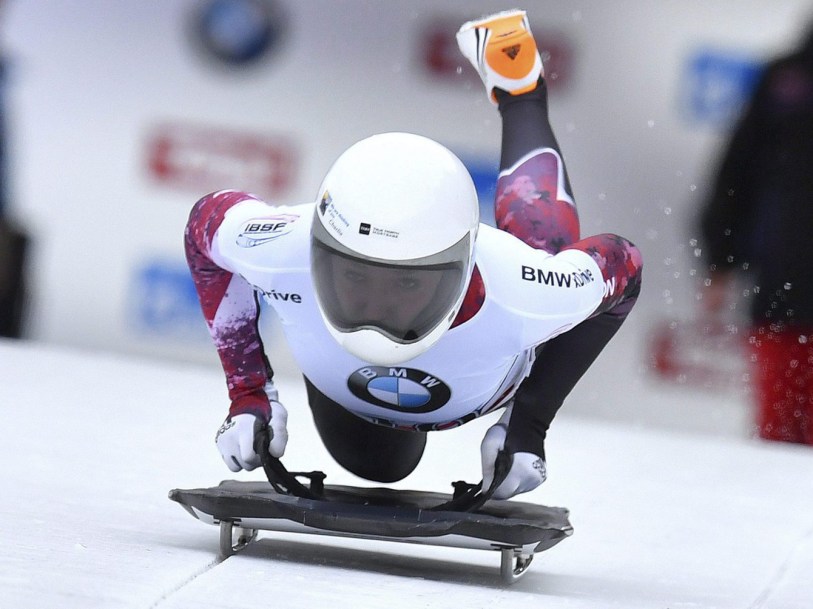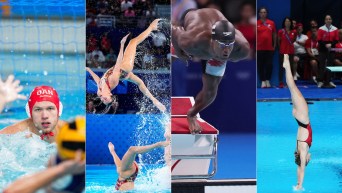From the rugby pitch to skeleton podiums, Mirela Rahneva finds her niche
Mirela “Mimi” Rahneva is fresh off an eighth-place finish at her first skeleton world championships, but six years ago she was a varsity rugby athlete looking for her next challenge.
After watching the intense bobsleigh competition at Vancouver 2010, Mirela decided to attend a recruitment camp where she impressed coaches with her explosive start speed. At 5’6 and 68 kg, she was deemed too small to push a bobsleigh, however she was a great fit for skeleton.
RELATED: Rahneva wins World Cup gold in St. Moritz
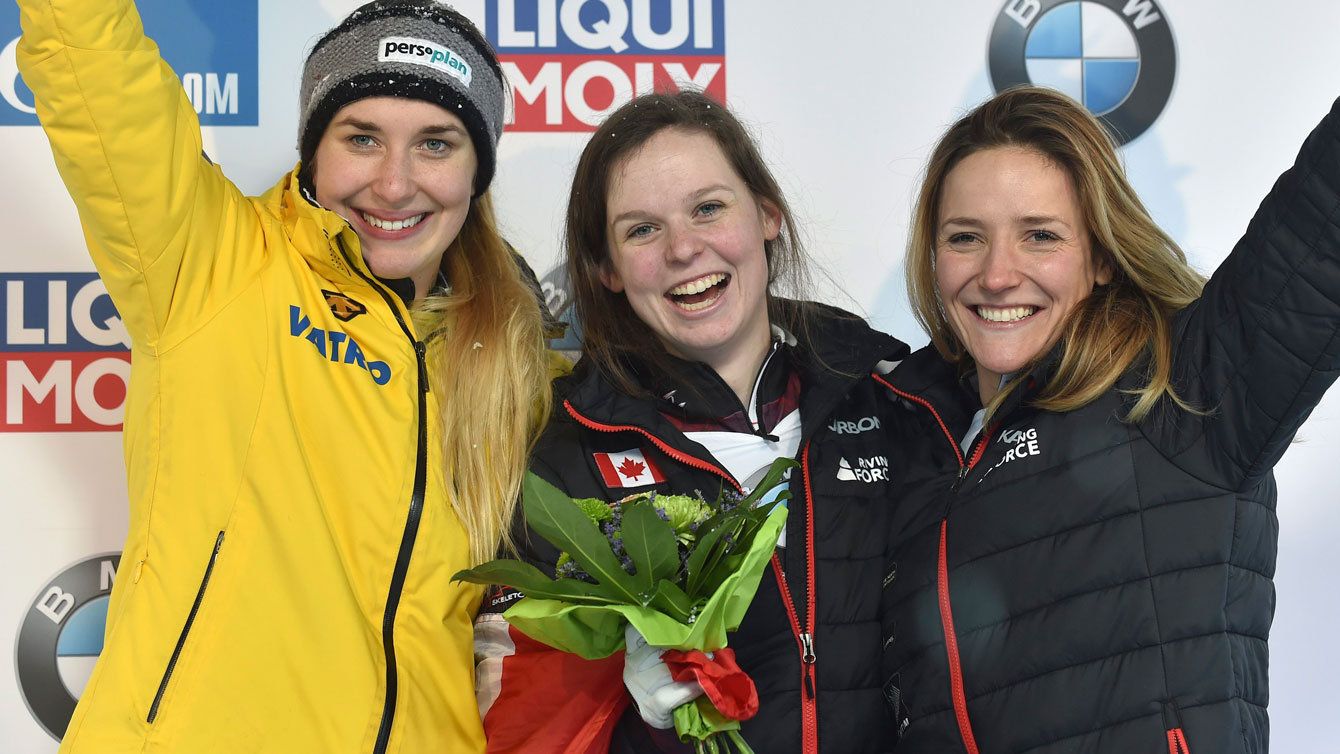
Elisabeth Vathje and Mirela Rahneva celebrate finishing first and third respectively at the Skeleton World Cup in Winterberg, Germany on Jan. 15, 2017. (Caroline Seidel/dpa via AP)
Mirela’s story is similar to several other sliding sport athletes. For years Bobsleigh Canada Skeleton (BSC) has been tapping into mature, powerhouse athletes to supply their sport with incoming talent. Thanks to RBC Training Ground, this process has gotten a lot easier.
RELATED: Finding future Olympians through RBC Training Ground
“Bobsleigh and skeleton are both second generation sports – many of our athletes have come from track and field, football or rugby,” explained Esther Dalle, the national recruitment coordinator for BCS. “We don’t have facilities like hockey rinks in every corner of the country, so recruitment camps of this nature are really critical to the future of our sport. We’re looking for athletes who demonstrate great speed and strength.”
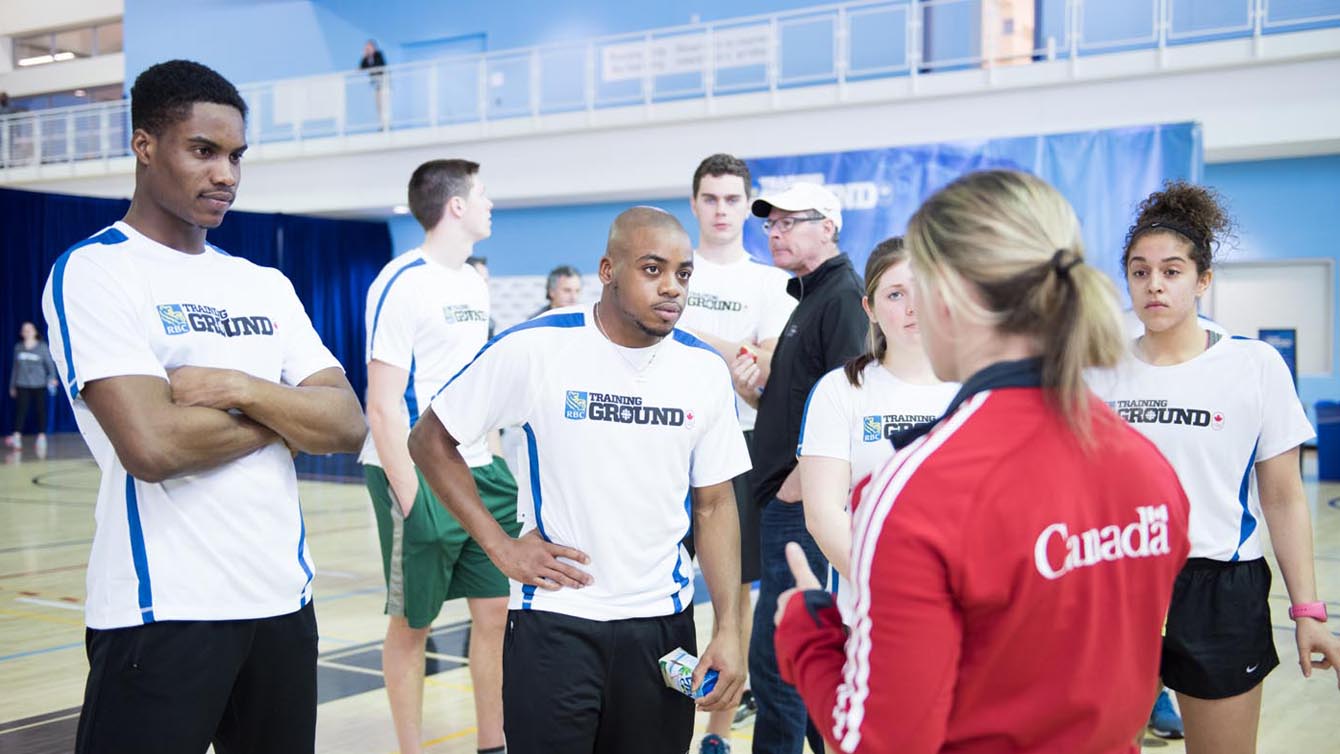
BCS talent ID coach Esther Dalle with participants at RBC Training Ground in Toronto in 2016. Photo credit: Mike Palmer
Esther will be scouting for the next generation of bobsleigh and skeleton athletes at the RBC Training Ground Regional Final for BC on March at the Richmond Oval. On Saturday, one hundred young athletes will aim to impressed coaches and talent ID representatives from 11 different national sport organizations (NSOs) in hopes of one day becoming a Canadian Olympian.
Many athletes will be testing for a sport they’ve never attempted before. However, like Mirela learned trying new things can pay off in a big way.
“It doesn’t take long to decide whether you like skeleton or not,” shared Mirela. “It was such a strange and exhilarating novelty to even try it – but I was immediately hooked. When you start out, you obviously don’t really know what you’re doing, but with every run you get a little bit more familiar with your sled and the track and you love it a bit more and become a bit obsessed with the intricacies of the sport.”
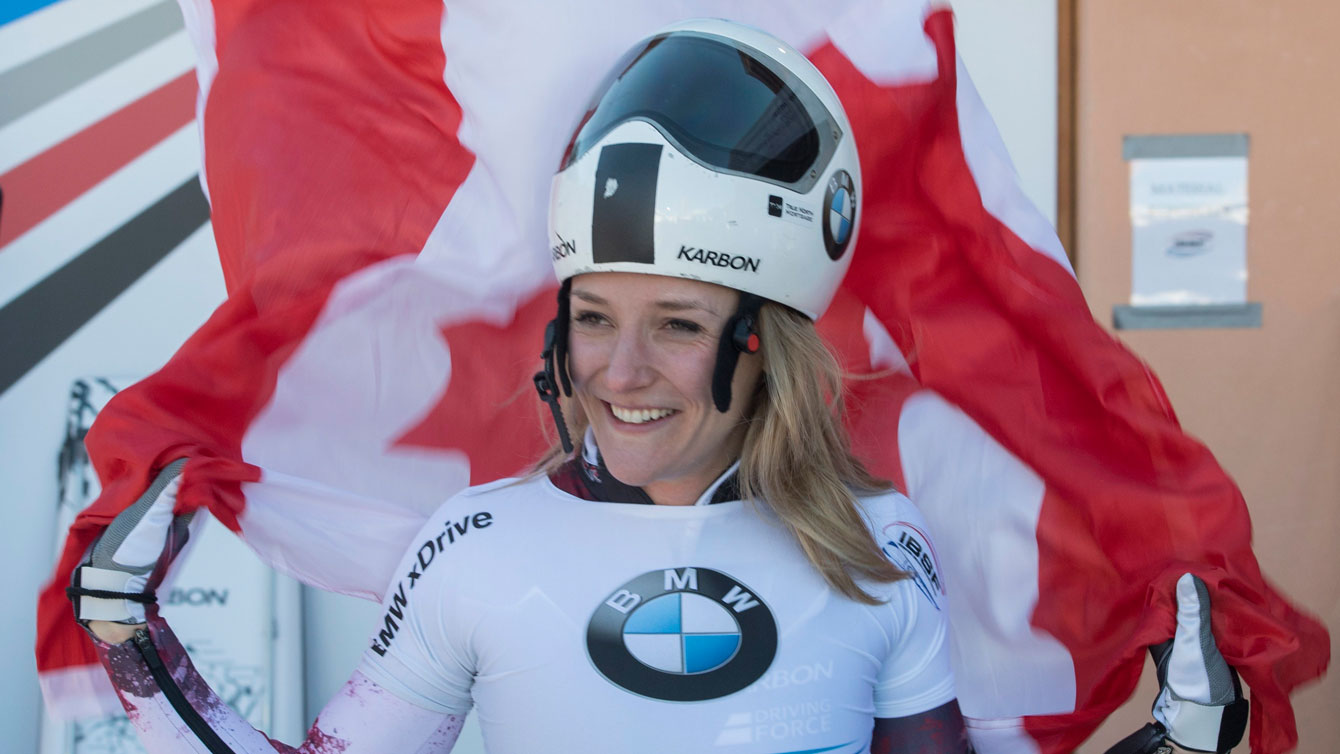
Mirela Rahneva after winning her first World Cup in St. Moritz, Switzerland, on Jan. 20, 2017. (Urs Flueeler/Keystone via AP)
Mirela trained for two years at the provincial level before graduating to the America’s Cup and Europa Cup circuits. This season Mirela made her debut on the World Cup tour and has already made her mark in women’s skeleton, with four World Cup podium finishes including a gold medal in St. Mortiz.
“Mimi’s development path is fairly traditional for her sport,” says Esther. “Most athletes are looking at about 4-5 years to gain experience and log runs on different tracks around the world before trying out for the World Cup team. Athletes who are identified this weekend through RBC Training Ground are most likely to make their Olympic debut in 2022, or even 2026.”
Although, Mirela only made the switch from rugby six years ago, her future looks bright in the sport of skeleton with only one year to PyeongChang 2018.

 Canadian Olympic Foundation
Canadian Olympic Foundation
